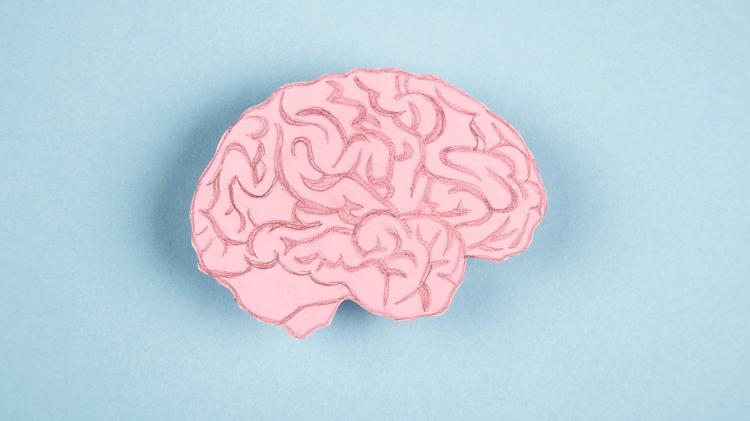What comes to your mind when you think of someone who stutters?
Is this person male or female? Is she weak and nervous, or heroic and strong?
If you had the chance, would you marry her, introduce her to your friends, or recommend her for a job?
Your behavior towards people who stutter may depend, in part, on what you think is causing the disorder. If you believe that stuttering is due to psychological causes, such as nervousness, be aware that research indicates that you are more likely to distance yourself from people who stutter and view them more negatively.
I am a stutterer and a PhD student in Speech Language and Audiology. Growing up, I did my best to hide my stutter and speak like a fluent speaker.
I avoided sounds and words that might make me stutter. I avoided ordering the dishes I wanted to eat in the school cafeteria to avoid stammering. I would ask my teachers not to call me out in class because I didn’t want to deal with classmates laughing when they heard me stutter.
These experiences led me to research stuttering so that I could help people who stutter cope better with their condition—myself included.
By writing about what the scientific field has to say about stuttering and its biological causes, I hope to reduce the stigma and misunderstanding surrounding this disorder.
stuttering experience
The most recognizable features of the development of stuttering are the repetitions, prolongations, and blocks in people’s speech. People who stutter may also experience muscle strain during speech and exhibit secondary behaviors such as tics and grimaces.
People who stutter often react to their experience of stuttering anxietyfrustration and embarrassment. They often anticipate that they might stutter and, as I did, take proactive measures to avoid stuttering by eliminating sounds or attitudes.
Some may also develop unhelpful beliefs and ideas about themselves and their ability to relate to others, such as feeling that they will not succeed in life or that they cannot speak properly.
Neurodevelopmental disorder
The exact cause of stuttering is still unknown. But it is widely accepted that stuttering is a complex neurodevelopmental disorder.
Studies of neuronal images of children and adults with stuttering suggest abnormalities in areas of the brain responsible for synchronization of movements and specialized motor control — such as speech production — called the cortico-ganglionic-thalamic-cortical circuit.
But researchers also know that brain development can be shaped by experience. Therefore, brain connectivity abnormalities among adults who stutter may be a consequence of the experience of stuttering, without contributing to the onset of stuttering.
Ongoing studies examining the differences between children and adults who stutter may help shed light on the major deficiencies associated with the onset of stuttering.
About 1 in 100 people worldwide stutter. And about 5% to 8% of preschool children stutter.
Most children who stutter—about 80%—recover spontaneously, with or without intervention, by about the age of seven. The remaining 20% suffer from stuttering in adulthood.
The researchers found similar neuroanatomical deficits in children ages 9 to 12 who continue to stutter and who recover. But those who continue to stutter into adulthood are mostly boys who have a family member who also stutters.
At the onset of stuttering, the ratio of boys to girls is about 1 to 1. But girls who stutter are more likely than boys to stutter. Therefore, the male to female ratio among adults who stutter is about 4 to 1.
People with a stutter that persists into adulthood tend to perform worse on at least one standardized assessment of articulation or the manipulation of sounds in words. They can, for example, pronounce a word without its initial sound.
Researchers are still studying factors that might predict whether childhood stuttering will continue into adulthood.
several tracks
A common misconception about stuttering is that it is caused by anxiety. After all, you can see that people who stutter may not always stutter the same way.
Adults who stutter do not stutter when talking to themselves in private. They also reported stuttering more under high stress, when the listeners were rude, or when talking on the phone.
But the causal factors are often more complex than one might think. First of all, noticing that two things are related, such as stuttering and anxiety, does not mean that one is the cause of the other.
Researchers don’t usually know which variable came first, stuttering or anxiety, or whether there are alternative explanations for the association.
In addition, many factors are commonly associated with the development of any complex neurodevelopmental disorder. Separating these factors and discovering their relationship is very complex and will take many years of research.
Since stuttering mainly involves a lack of speech fluency, it is likely that neurological deficits in the areas of the brain responsible for speech production are the cause of the disorder.
But research indicates a number of conditions, such as language and emotional factors, that can maintain stuttering for life or exacerbate the disorder in certain situations.
How to overcome stigma
Research indicates that stuttering is often considered an undesirable trait and that people who stutter are discriminated against and often devalued in society.
Examples occur when they are fired from their jobs, treated lightly, not taken seriously, or shunned.
In recent years, there have been more and more headlines about people who stutter. Election of the American President Joe Biden, who stutters since childhood, has been an inspiration to millions of people who stutter. But at the same time, Biden’s rhetoric has come under increased scrutiny and has already drawn insensitive criticism, such as “his brain is going to break.”
Politics aside, rhetoric about stuttering can further stigmatize the disorder and make it possible for others to feel entitled to ridicule differences in speech.
recovery reset
Currently, there is no effective treatment for stuttering when it continues into adulthood.
In one large-scale study, less than 2% of adults who grew up stuttering indicated that they no longer identified as people who stuttered. Therefore, stuttering in adulthood is not a sign of moral failure, that the person is not trying his best or does not have enough self-discipline to speak fluently.
However, about 30% of adults with stuttering say they have recovered, although about 10% of them have regressed. Recovery was defined as not only reducing stuttering, but also having greater control over how they stutter, stating what they mean to say, as well as being more receptive to stuttering, avoiding fewer words, and having fewer negative feelings about stuttering.
Ironically, in settings where people can stutter without judgment—such as in self-help meetings—people who stutter reported that their speech became easier, they felt less anxious when speaking and they felt more open and friendly toward others.
* Xiaofan Lei is a doctoral student in speech pathology at the University of Minnesota in the United States.
This article originally appeared on the academic news site The Conversation and is republished under a Creative Commons license. Read Here is the original English version.

“Wannabe internet buff. Future teen idol. Hardcore zombie guru. Gamer. Avid creator. Entrepreneur. Bacon ninja.”



